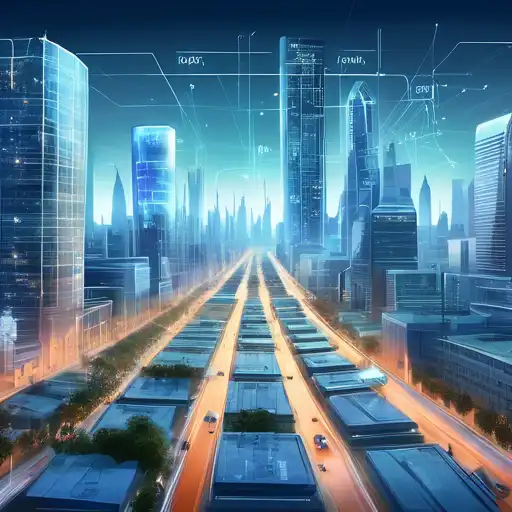Introduction to IoT and Smart Cities
The Internet of Things (IoT) is revolutionizing the way cities operate, making them smarter, more efficient, and more responsive to the needs of their inhabitants. By connecting devices, sensors, and infrastructure to the internet, cities can collect and analyze data to improve services, reduce costs, and enhance the quality of life for residents.
Key Areas Where IoT is Making an Impact
From traffic management to waste disposal, IoT technologies are being deployed across various sectors to create more sustainable and livable urban environments. Here are some of the key areas where IoT is making a significant impact:
- Traffic and Transportation: IoT-enabled sensors and smart traffic lights help reduce congestion and improve public transportation systems.
- Energy Efficiency: Smart grids and meters allow for more efficient energy use, reducing costs and environmental impact.
- Waste Management: Smart bins and waste collection systems optimize routes and schedules, leading to cleaner cities.
- Public Safety: Surveillance cameras and emergency response systems enhance security and reduce crime rates.
Benefits of IoT in Urban Development
The integration of IoT technologies into city infrastructure offers numerous benefits, including:
- Improved efficiency and reduced operational costs
- Enhanced public services and citizen engagement
- Greater sustainability and reduced environmental footprint
- Increased safety and security for residents
Challenges and Considerations
Despite its many advantages, the implementation of IoT in smart cities also presents challenges such as privacy concerns, data security, and the need for significant investment in infrastructure. Addressing these issues is crucial for the successful adoption of IoT technologies.
Future Prospects
As technology continues to evolve, the potential for IoT to transform urban landscapes is limitless. Future developments may include more advanced AI integration, autonomous vehicles, and even smarter buildings, further enhancing the efficiency and sustainability of cities.
For more insights into how technology is shaping our world, explore our technology trends section.
Conclusion
The role of IoT in making cities smarter cannot be overstated. By leveraging connected technologies, urban areas can become more efficient, sustainable, and livable. However, realizing this vision requires careful planning, investment, and collaboration among stakeholders. The future of urban living is smart, and IoT is at the heart of this transformation.
